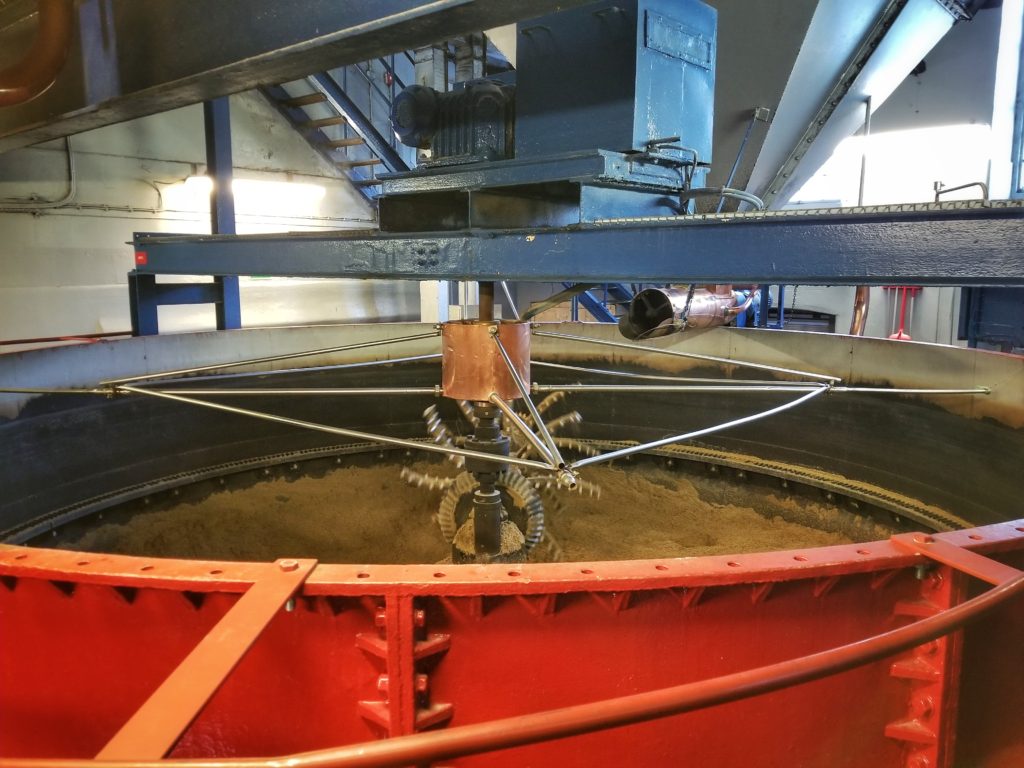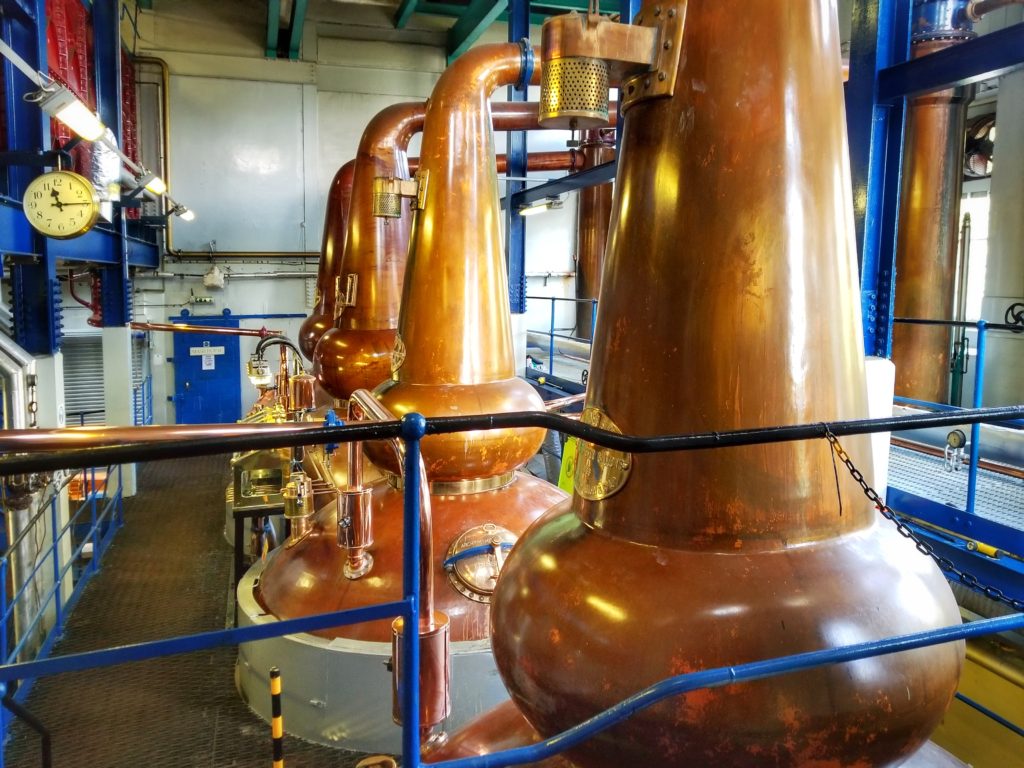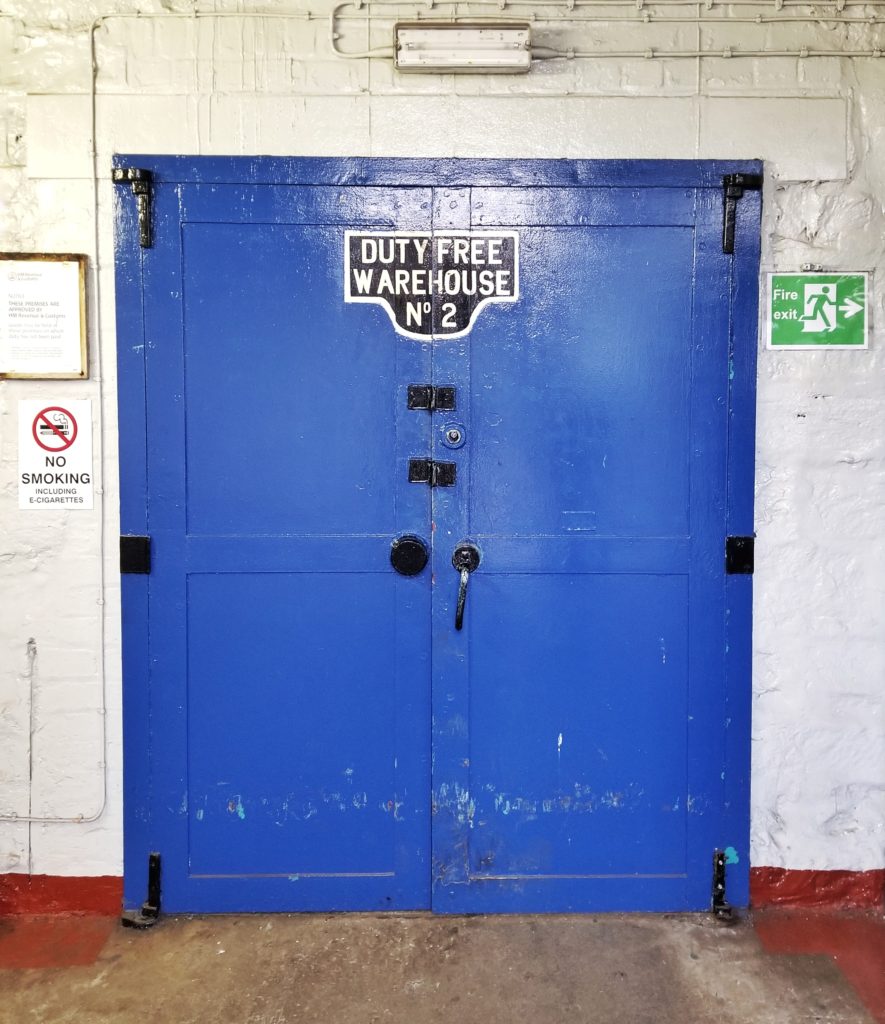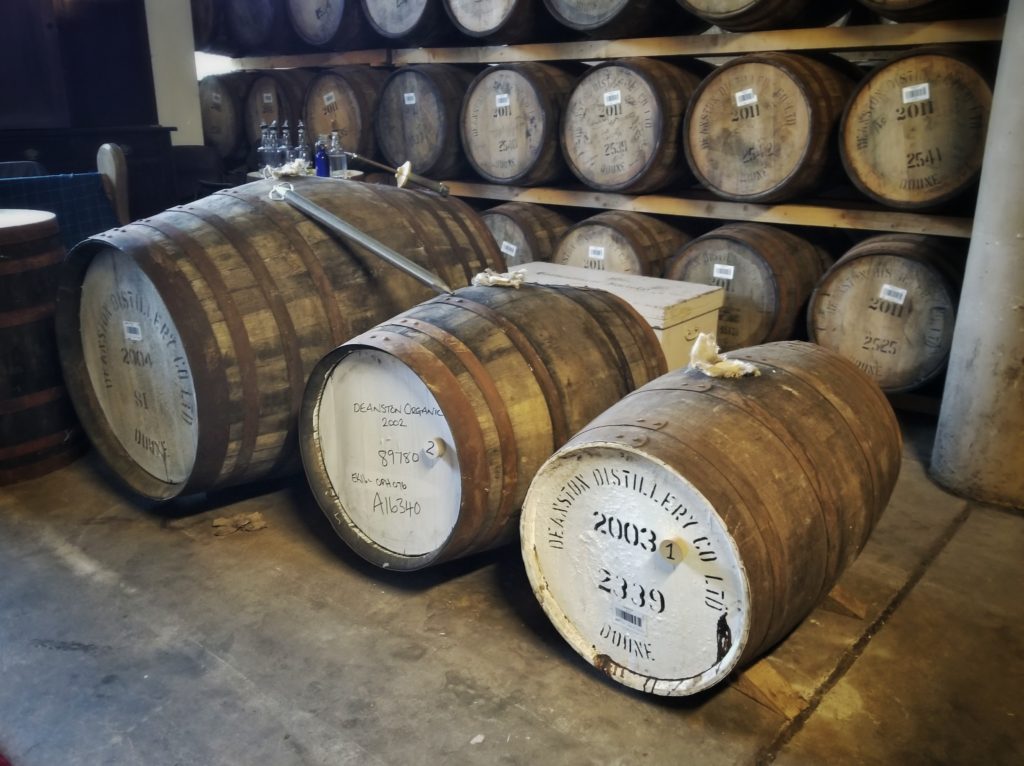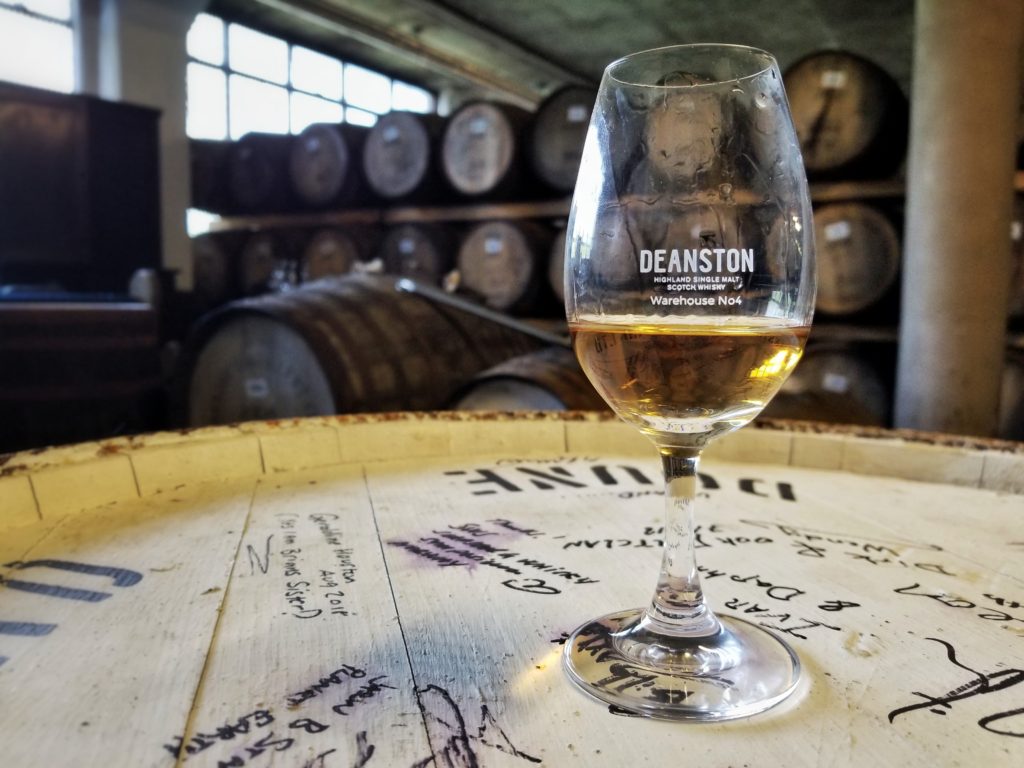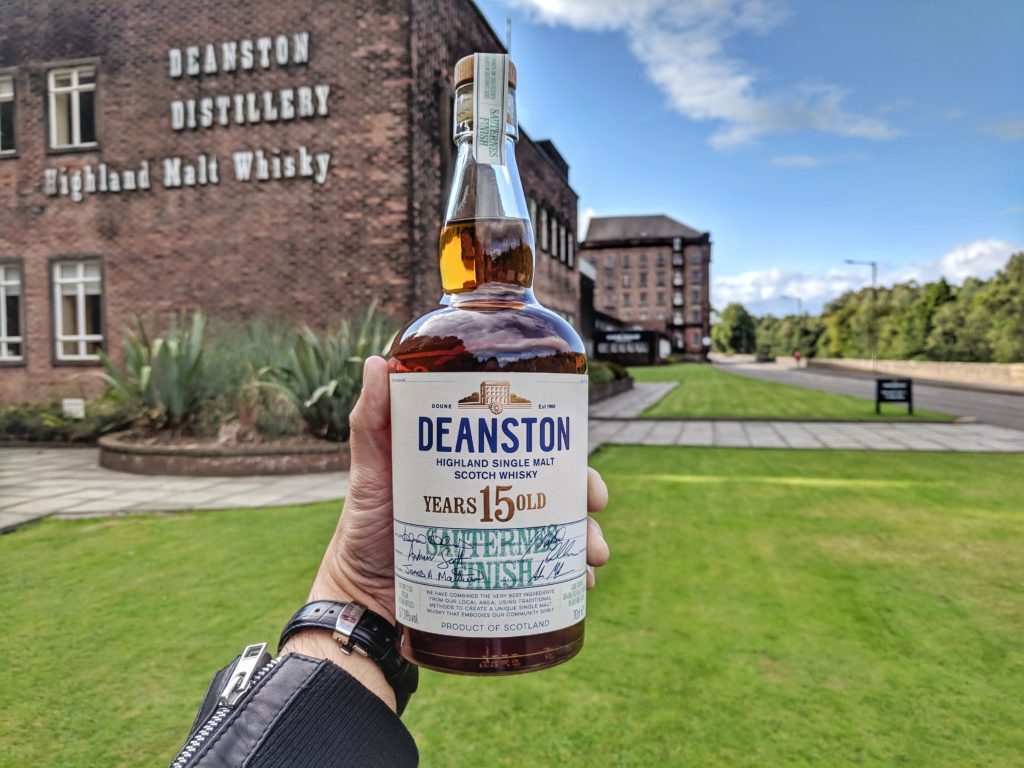Some 30 miles north of Glasgow lays the Deanston distillery. Founded in 1966, Deanston converted an inactive cotton mill built in 1785 into a distillery. The location was chosen given it’s proximity to the River Teith where the distillery sources their water and also used for the on-site hydro-electric facility making Deanston the only self-sufficient distillery in Scotland.
Deanston is also different from many Scotch distilleries being 1 of 6 still using an open mash tun. Due to Health & Safety regulations, many distilleries are required to cover their mash tuns; Deanston however was granted a 1 year extension to adhere to this regulation due to the location of the mash tun where it’s so tightly cramped it’s nearly impossible to put a cover on it. .
As with most distilleries, Deanston uses a 3 wash cycle to turn the malted barley into wort. Each mash consists of 10 tons of barley delivered already malted (130T of barely delivered each week). The distillery uses a Porteus mill to turn the malt into grist. (Fun fact: Porteus machines are so robust that the company went out of business due to people not needing new machines or replacement parts.)
The grist is added to the mash tun with a first wash of 40,000L at 64C, followed by a second wash of 19,000L at 78C. The third and final wash uses 40,000L at 88C which is then recycled as the first wash for the next batch. After 103 hours of fermentation, 59,000L or wort are transferred to 1 of 8 steel washbacks (60,000L cap).
Two wash stills are used to turn the 59,000L of fermented “beer” (8% ABV) into 40,000L of low-wines between 8 and 24% ABV. After the first distillation, the low-wines move to two spirit steels where the 40,000L of low-wines yields 4,000L of new make spirit at ~70% ABV with an output of 6,000-7,000 casks each year.
Part of the original cotton mill, Warehouse No. 2 now used to store some of the casks. The warehouse has groined a ceiling made of concrete several feet thick that makes the warehouse cold with relatively stable humidity. The groined ceiling and pillars allow any moisture to run down the pillars and walls instead of dripping onto the cotton mill, or what are now casks.
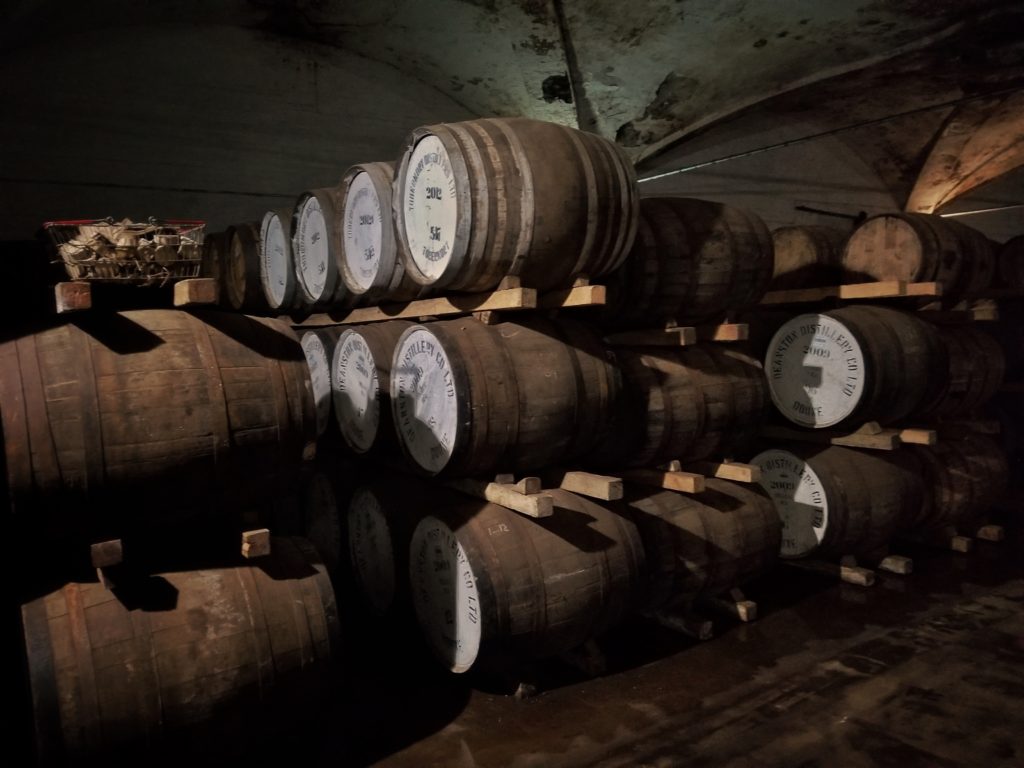
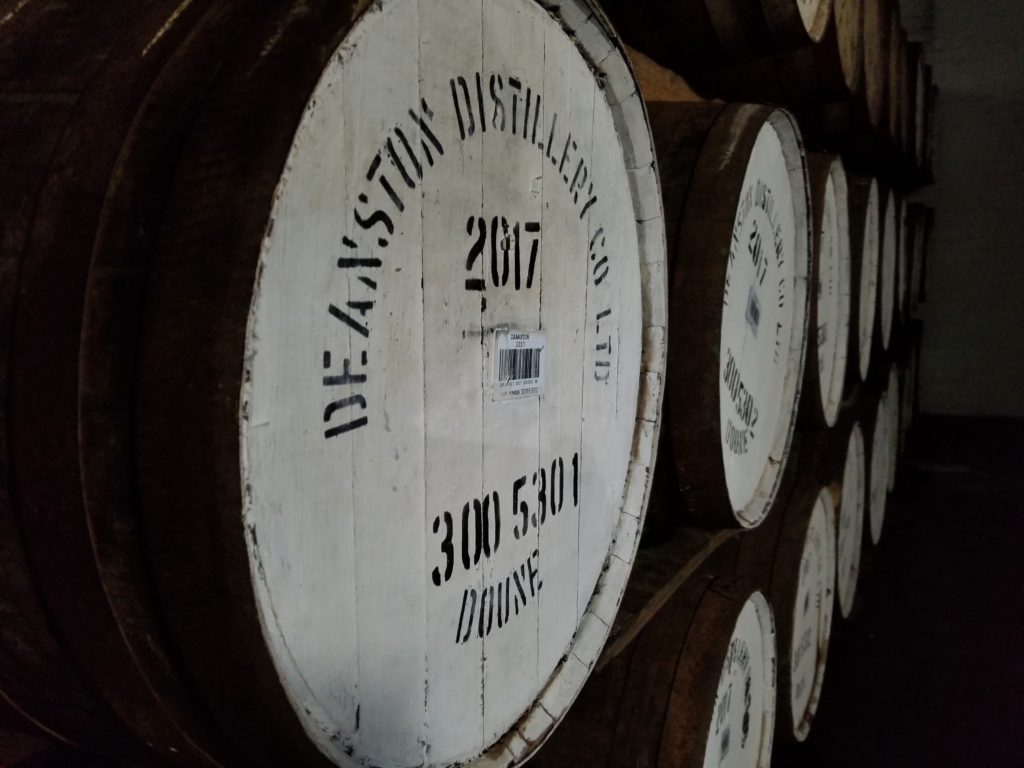
Moving into Warehouse No. 4 we began the tasting of three different whiskies from three different types of casks. The first being a bourbon cask (#2339) originally distilled in 2003 and sitting at 58.7% at the time of the tasting. Given how cool the warehouse was (probably around 16C) I had to warm the glass with my hands for several minutes to get the dram to open up. It’s amazing how much difference temperature can have on a whiskies profile.
The next dram was Deanston’s Organic, distilled in 2002 and matured in new white American oak casks. Bourbon casks couldn’t be used for the maturation as most bourbon is not truly organic. However, Pedro Ximenez sherry is organic, which meant the whisky could be finished in PX casks after 12 years of maturation in the new American oak casks. At 49.6% ABV at the time of tasting, this was my favorite dram of the bunch, and the one I bottled to bring home.
The final dram for tasting was distilled in 2004 fully and matured in an amontillado butt with the highest ABV of the three, a punchy 59.4%.
In the visitor center you can find several Deanston expressions, many of which are limited edition or exclusives to the distillery and are available to try before purchasing a bottle. I personally loved the Decennary and Sauternes Finish and bought one of each (reviews coming soon). The current distillery exclusive handfill is the Deanston Craft Ale cask. Deanston is owned by Distell, which means the gift shop also have bottles from their other brands, Tobermory, Ledaig, and Bunnahabhain.
Special thanks to JasonWhiskyWise for connecting me with Deanston and Daman at the distillery for sharing his vast knowledge of Deanston giving me an exclusive private tour of the distillery.
Deanston
Founded: 1966
Region: Highlands, Scotland
Owner: Distell
Production: 1,900,000 LPA
Capacity: 3,000,000 LPA
Mash tun: Open top mash tun with a tumbler
Washbacks: 8 steel (60,000L capacity)
Stills: 2 wash, 2 spirit


